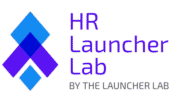The interview stage is one of the most critical parts of the hiring process, especially for small businesses where every hire can have a significant impact. It’s your chance to learn about a candidate’s skills, experience, and personality while also showcasing your company’s culture and values. For small business owners, hiring the right person can feel overwhelming—after all, there may not be a dedicated HR team, and a bad hire can be costly in terms of both time and resources. A well-prepared interview not only helps you find the right fit for your organization but also leaves every candidate with a positive impression—even if they aren’t selected for the role.
This guide will help you structure interviews, navigate multiple interview phases, and understand different interview types. We’ll also cover techniques for making interviews both insightful and engaging, while addressing the common pain points faced by small businesses, like limited time, lack of formal HR experience, and the need to make a great impression with every candidate.

Why Great Interviews Matter #
A successful interview process helps you:
- Assess skills and cultural fit: Understand if the candidate’s skills, experiences, and personality align with the role and your organization. For small businesses, finding someone who fits culturally is crucial, as each new hire will significantly shape your work environment. It’s important to consider how the candidate’s values and working style align with your existing team.
- Create a positive candidate experience: First impressions matter, and an engaging interview process helps build goodwill. Small businesses often rely on word-of-mouth and reputation to attract talent, so a positive candidate experience—even for those not selected—can contribute to your brand as a great place to work.
- Showcase your company culture: Interviews are an opportunity to highlight what makes your company unique and why it’s a great place to work. For small businesses, this means communicating your values, the close-knit nature of your team, and any benefits or opportunities for growth that make your company special. Candidates should leave feeling excited about the possibility of working with you.
Let’s explore how to conduct interviews like a pro, from structuring different phases of the process to using various types of interviews effectively.
Disclaimer #
The information on this site is meant for general informational purposes only and should not be considered legal advice. Employment laws and requirements differ by location and industry, so it’s essential to consult a licensed attorney to ensure your business complies with relevant regulations. No visitor should take or avoid action based solely on the content provided here. Always seek legal advice specific to your situation. While we strive to keep our information up to date, we make no guarantees about its accuracy or completeness.
This content may contain affiliate links, meaning we receive a commission if you decide to make a purchase through our links, at no cost to you.
For more details, refer to our Terms and Conditions.
